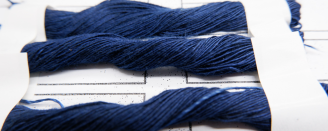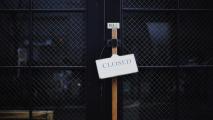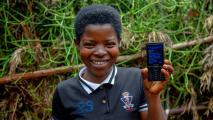Jeans are arguably the most popular and versatile fashion item. They can be dressed up or dressed down, and they’re in style for years and years. And the more worn they get, the better they look.
But look deeper, and you’ll find hidden environmental consequences — like toxic chemicals, hazardous waste, and excessive water consumption. Even the indigo dye is problematic because it is derived from petroleum. But a new startup, Huue, has a solution. They are cultivating bacteria that generate the same iconic blue, without the need for hazardous chemicals.
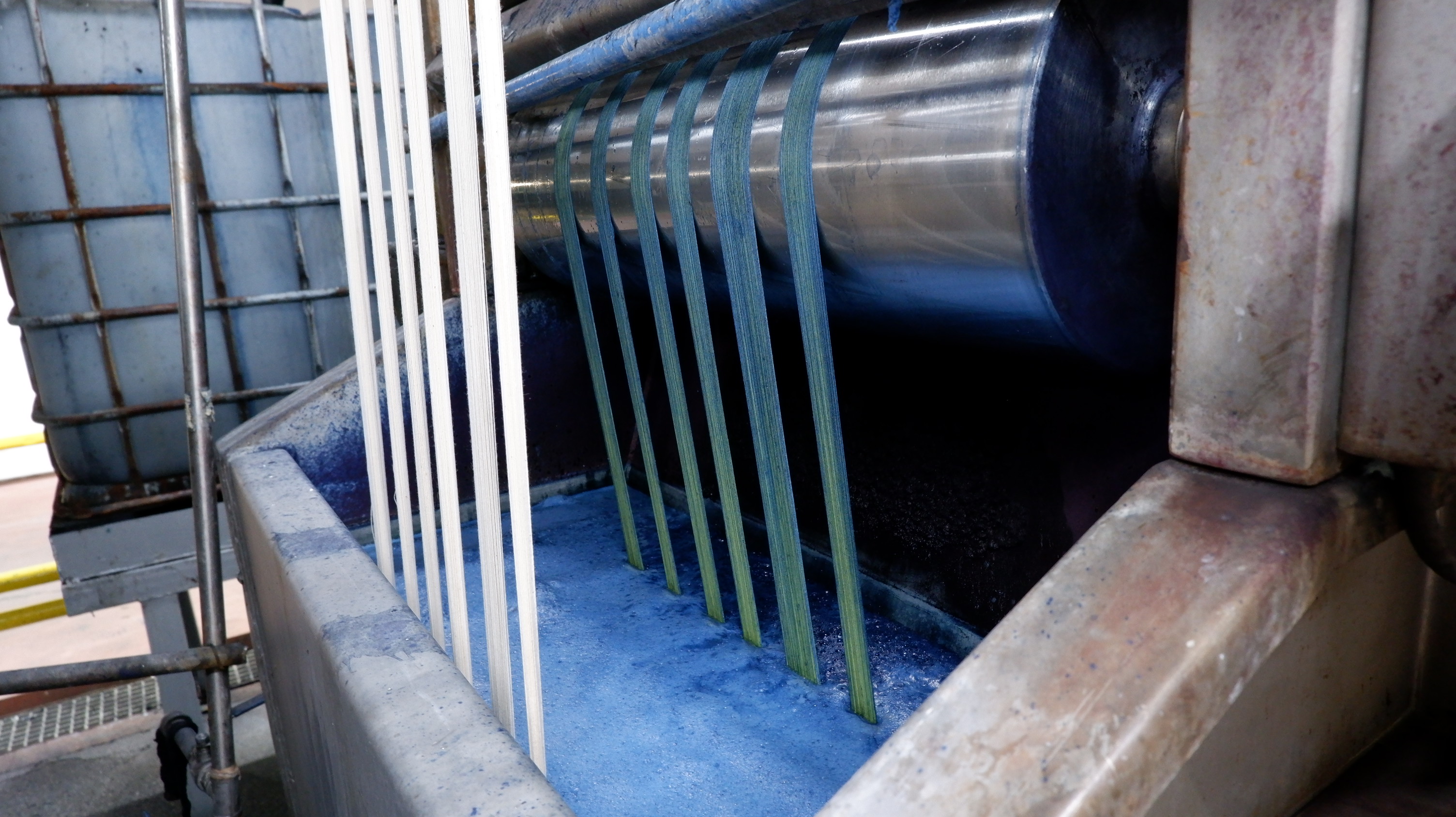
The problem: When Levi Strauss and Jacob Davis got a patent for riveting men’s work cotton pants in the 1870s, their blue jeans became wildly popular. At the time, they were dyed with indigo, a plant-based dye. However, synthetic colors gradually replaced natural dyes. Then, over a century ago, high-performance chemical dyes took over the industry. Today, very few designers still use plant-based indigo dye.
Most denim is manufactured in China. The dyes used to process the jeans have a huge environmental impact, pollute local waterways, and impact the health of factory workers.
“As a child, I would visit garment manufacturing facilities on summer trips to China and witness the pollution firsthand: particles in the air that workers had to guard against with facemasks, and foul-looking waterways around the factories. It made a lasting impression on me,” Huue co-founder Michelle Zhu told Inc.
The solution: Tammy Hsu and Michelle Zhu co-founded Huue to find a better solution. Their work is grounded in research on the enzymes in plants that generate colors in natural dyes. They then exactly replicate these natural dyes using biotech, and they’re starting with blue jeans’ famous indigo dye.
“As a child, I would visit garment manufacturing facilities on summer trips to China and witness the pollution firsthand: particles in the air that workers had to guard against with facemasks.”
Michelle Zhu
“We grow microbes that have been programmed with genetic information from plants who make different kinds of natural dyes. And so we take that genetic information and we program our microbes, so that they can then grow and divide and produce a lot of the dye,” Hsu told Freethink. “It’s sort of like brewing beer.”
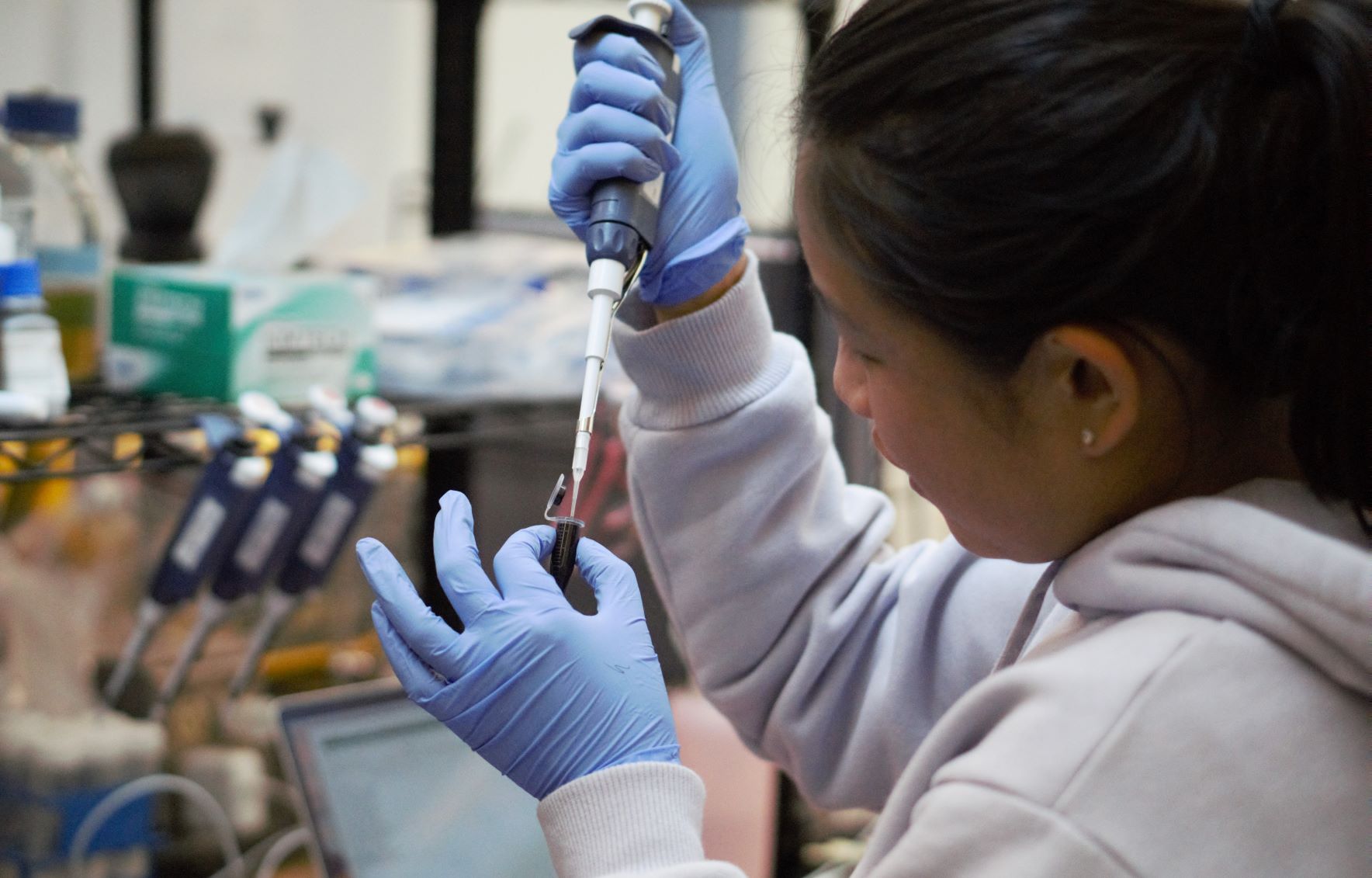
The biotech dye production method eliminates the use of petroleum. According to Huue, manufacturing a kilogram of indigo dye typically needs 100 kilograms of petroleum. Huue’s process uses none. It also gets rid of potential pollutants like formaldehyde and other chemicals.
“We look at how the indigo plant makes the indigo dye molecule. Then we take that genetic information and instruct our microbes to make indigo the same way. We’re growing these microbes, and they’re programmed to secrete the indigo,” Hsu explained to Inc.
“Over the past two and a half years we’ve been really focused on developing the product and figuring out how we can scale up,” Hsu told Freethink. “We’re all very excited for the product to become a reality.”
Earlier this year, the team announced they won $1 million in Melinda Gates’s Female Founders Competition, and they raised $3 million from investors. They are now working with denim brands to conduct pilot tests.
“Greening” blue jeans: Consumers buy over a billion pairs of jeans each year. And, since the dye isn’t the only problem, we need more ways to create sustainable denim. Thankfully, Huue isn’t the only company making an effort.
G-Star RAW, a Dutch denim company, has organic and recycled denim lines, using yarn spun from ocean plastic trash. Their own indigo dye technology uses 70% fewer chemicals than the typical process and 98% recycled and reused water.
“We grow microbes that have been programmed with genetic information from plants who make different kinds of natural dyes… It’s sort of like brewing beer.”
Tammy Hsu
“There needs to be a shift in the mindset of constantly buying, buying, buying—yes. Yet, people like fashion, and they will always want to buy more,” Adriana Galijasevic, a G-Star’s sustainability and research head, told Forbes. “But if you design in a way that you can reuse and remake, and you take those used resources to turn them into something else, then it’s ok to be versatile, and it’s ok to be abundant.”
Levi Strauss & Co., still the titan of the denim industry, is also spearheading industry efforts to develop a cleaner, more sustainable pair of jeans — including manufacturing techniques that use less water and collecting and recycling your old jeans.
But the brands shouldn’t be the only ones doing their part. We can all help reduce the environmental footprint of our favorite jeans by simply washing them less. Serious denim connoisseurs argue you never need to wash your jeans. But, according to Levi’s Definitive Guide to Demin Care, “Wash them once every ten wears at most to maintain fit and prevent too much ‘rebound,’ [because] that unique look comes from wearing your jeans for long periods without washing.”
We’d love to hear from you! If you have a comment about this article or if you have a tip for a future Freethink story, please email us at [email protected].
